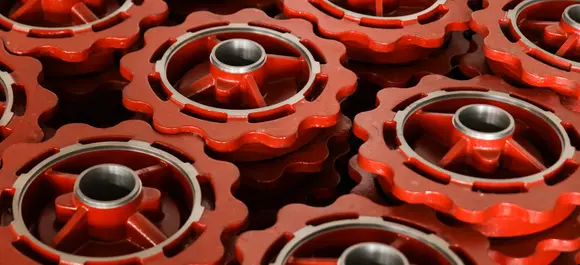Mobile:+86-311-808-126-83
Email:info@ydcastings.com
Understanding the Properties and Uses of Iron Metal in Various Applications
Iron Metal The Backbone of Modern Civilization
Iron has played a pivotal role in human history, shaping civilizations and fostering technological advancement. As the most abundant element on Earth, it primarily exists in the form of ores such as hematite and magnetite, which are mined and processed to yield iron metal. The extraction and use of iron can be traced back over 3,000 years, marking the onset of the Iron Age, a period that signified a monumental shift in tools, weapons, and construction techniques.
Historical Significance of Iron
The use of iron quickly spread across cultures due to its superior qualities compared to bronze, which was predominantly used before the advent of ironworking. Iron tools were harder, more durable, and could be produced in greater quantities, which propelled agricultural productivity and improved living standards. Societies that embraced iron technology, like the Hittites, soon gained military advantages, leading to territorial expansions and sociopolitical changes.
Iron's significance goes beyond weaponry and tools; it played a foundational role in the construction of infrastructure. The Romans, for instance, utilized iron for building bridges, aqueducts, and fortifications, which facilitated trade and communication throughout their vast empire. The material's strength and versatility enabled the construction of edifices that still stand today, testifying to the durability of iron.
The Science of Iron
Chemically, iron is classified as a transition metal, symbolized by Fe in the periodic table. It has notable properties that make it essential for various applications. Iron is ferromagnetic, which means it can be magnetized and is attracted to magnets. This property is exploited in numerous electronic devices, including motors and transformers. Additionally, iron has a relatively high melting point (1538°C), allowing it to be used in high-temperature applications.
Various alloys of iron further enhance its utility. For instance, steel, an alloy primarily consisting of iron and carbon, exhibits increased strength and flexibility compared to pure iron. The ability to manipulate iron's properties through alloying has resulted in innovations in construction, transportation, and manufacturing. From skyscrapers to automobiles, iron and its alloys form the backbone of modern infrastructure and technology.
iron metal

Modern Applications
Today, iron is crucial in countless industries. The construction industry relies heavily on steel, which is integral to building frameworks, pipelines, and machinery. In transportation, iron is used in automotive manufacturing, rail systems, and shipbuilding, providing safety, durability, and efficiency. Moreover, the renewable energy sector is also harnessing iron; wind turbines and solar panel frames often incorporate components made from iron and its alloys.
Iron's importance also extends to everyday products. From kitchen utensils and appliances to household tools and furniture, iron's presence is ubiquitous. Its recyclability adds to its appeal, making it an environmentally friendly option in an age striving for sustainability. The recycling process for iron is energy-efficient, significantly reducing the carbon footprint compared to extracting new iron from ore.
The Future of Iron
As we move toward a more sustainable future, the role of iron will likely evolve. Innovations in iron production, such as green iron technologies that reduce carbon emissions during extraction and processing, are being explored. These advancements are essential for mitigating climate change and promoting more sustainable industrial practices.
Furthermore, research into iron's potential in new areas, such as its use in new-generation batteries for electric vehicles and energy storage, could position iron as a key player in the transition to renewable energy sources.
Conclusion
Iron metal is not just a material; it is a historical testament to human ingenuity and progress. From the early days of ironworking to its contemporary applications across various industries, the journey of iron encapsulates the spirit of innovation that has defined civilization. As we look toward the future, iron will undoubtedly continue to play a crucial role, adapting to new challenges and opportunities in a rapidly changing world. Its significance in our daily lives and its potential in sustainable technologies solidifies iron's status as one of the most important metals in human history.
-
Understanding Metal Casting TechniquesNewsApr.02,2025
-
Understanding Exhaust Manifolds for Enhanced Engine PerformanceNewsApr.02,2025
-
The World of Metal FabricationNewsApr.02,2025
-
Key Components for Pump and Turbo EfficiencyNewsApr.02,2025
-
Essential Tools for Automotive Maintenance and RepairNewsApr.02,2025
-
Durable Valve Components for Effective Water ManagementNewsApr.02,2025











